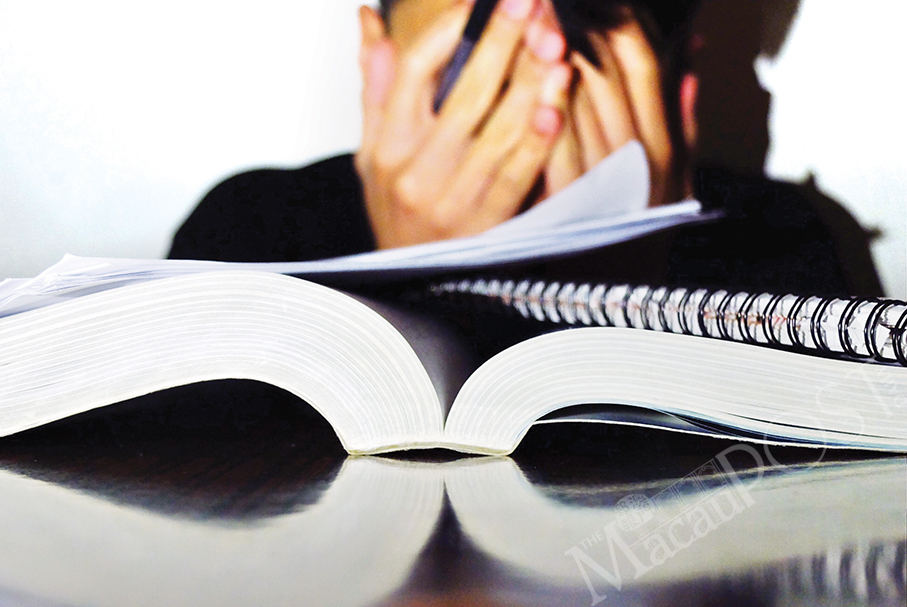Stress is something that we all feel regardless of where we are in life. We see it in the workforce while in pursuit of recognition and we see it through the eyes of students attempting to achieve academic excellence. While it is true that stress can be a driving force that someone needs to excel, it can also be the hand that strangles you, the biting anxiety that keeps you restless at night. It is therefore important to make sure that one takes the time to remember that taking breaks is important. For students in Macau, should this be a reminder?
Looking back at news reports last month, a survey from the General Union of Neighbourhood Associations of Macau (UGAMM), also known as Kai Fong, showed that students aged at least 15 rated their stress levels with a relatively high average, which was 7.54 on a 10-point scale, with Kai Fong Social Service Office Vice Director Cheong Un Si citing reasons such as competition at school, the need to join extra-curricular activities, and the COVID-19 pandemic’s unpredictability. Last year, a survey by the association assessing the mental health of Macau residents aged over 13, with almost 65 percent of the respondents being secondary school students, also found that students face stress from school-related pressure.
Looking beyond the surveys’ findings, there are also times when I see younger students carrying large, heavy-looking backpacks to places such as tutorial centres, libraries or possibly even multiple extra-curricular activities after school or during the weekend. Although this is mostly a good thing as it can keep them engaged, aid in learning and help those who need these activities, overdoing it could be among the reasons why some students would eventually feel stressed. Perhaps for some, the backpacks might even be representative of the weight of current or impending stress.
Considering these factors, it is worth noting that stress can be a starting point for a number of problems ranging from anxiety to depression. If left unmanaged, it can also attribute to losing sight of the importance of taking care of yourself, as well as affecting motivation. In a 2015 TED-Ed video titled “How stress affects your brain”, it was noted that continuous stress can even change one’s brain. Citing an example, chronic stress through being overworked affects brain size and structure, according to the video, which also pointed out that it might also make it harder for someone to learn and remember things, possibly opening a path for serious mental problems like depression and even Alzheimer’s disease. These are only examples for why the need for rest should be considered as not only being important, but also being necessary in the long-run.
Having been a university student not too long ago, I can also attest to the importance of resting as I was constantly shadowed by anxiety and self-inflicted pressure regarding my academic grades and keeping up with classmates. Eventually, I felt the weight of its negative effects to a point where I lost whatever drive I had and became largely unhappy. I used to think that taking breaks would take away the limited time I was given to work on what I needed to do, but once I realised its importance, I eventually overcame the struggles I had and worked better. Personally, this showed me that taking breaks is not a waste of time and instead alleviates pressure and allows one to work with a clearer mind, which is why I advocate their importance.
Stress can be a catalyst for success, but it can also be an overlooked component for failure. Where stress is a growing concern, I believe that it is important to acknowledge that taking breaks is more than necessary while also reminding those facing stress to do so. It would benefit them not only in terms of goals, but with mental health as well.


Photo: Rui Pastorin









